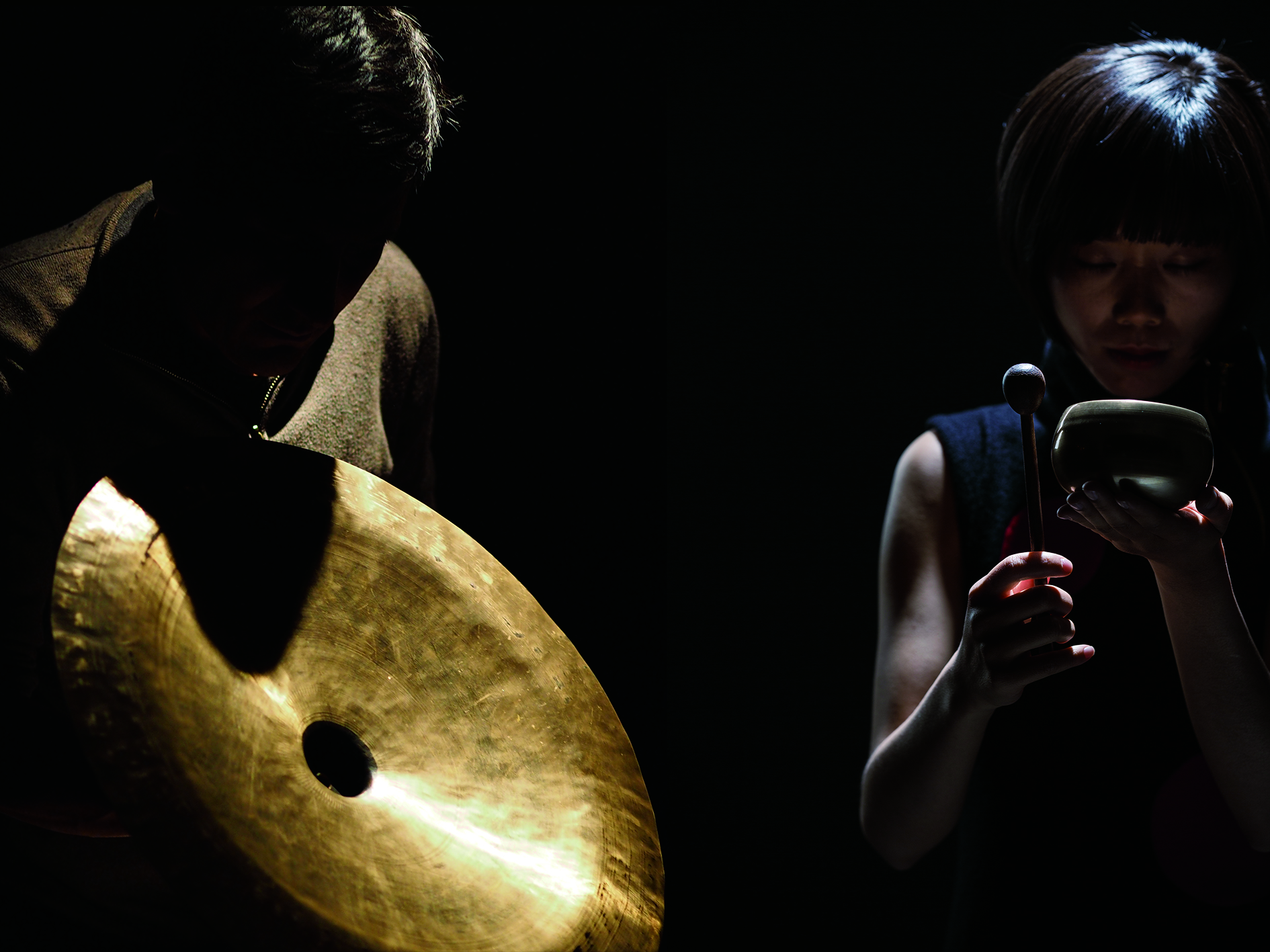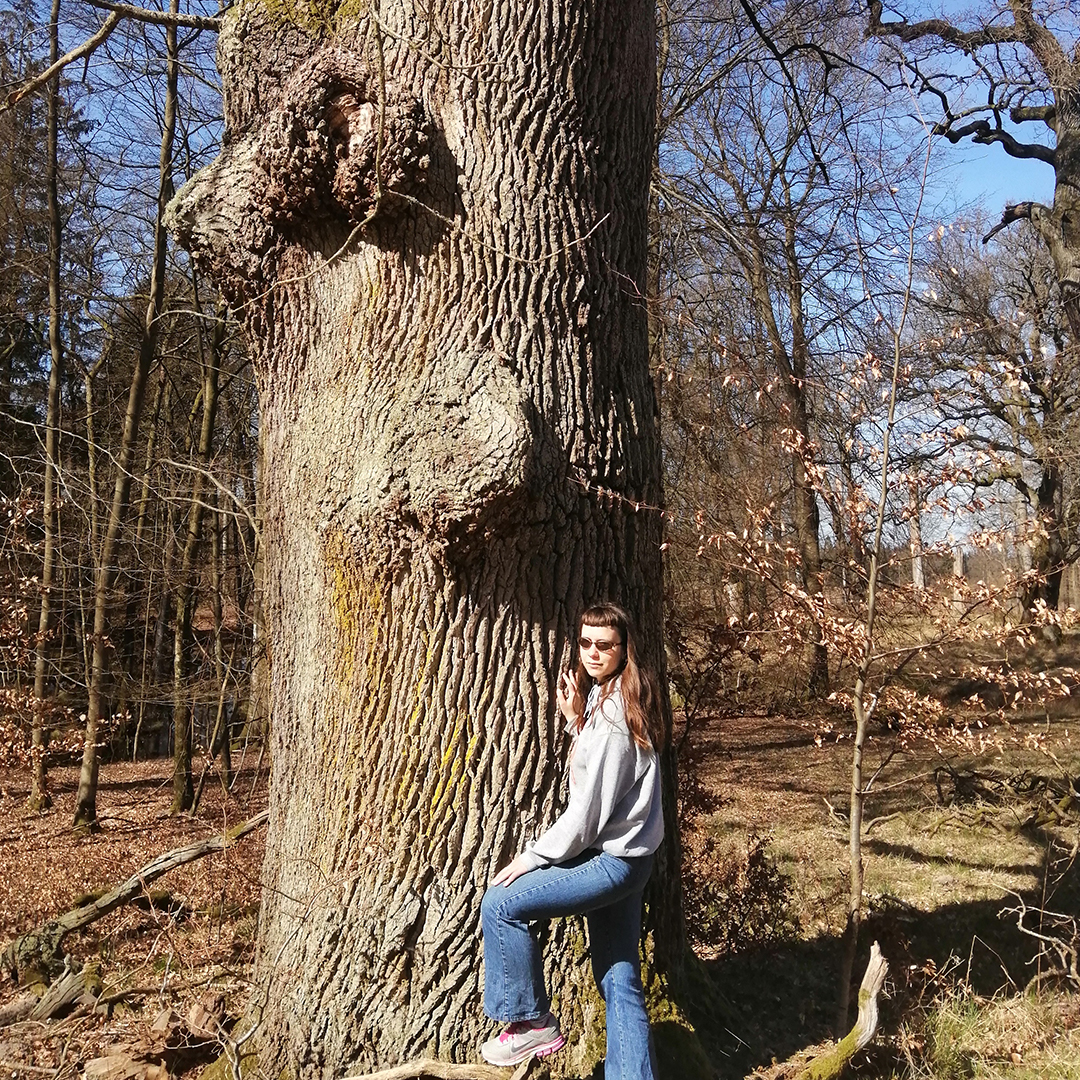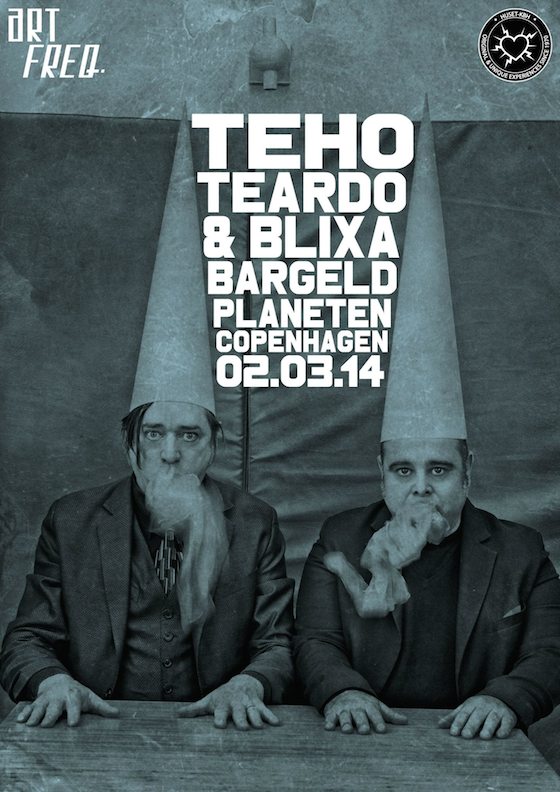Ying-Hsueh Chen – Connecting the raw and the abstract (interview)

Af Simon Christensen
Slagtøjsspiller Ying-Hsueh Chen er født i Taiwan, har studeret i Californien, New York og i København, hvor hun i dag bor og lever som ‘moderne klassisk’ multiinstrumentalist, improvisator og underviser. Interessant nok er det nu med Ying-Hsueh selv i rollen som koncertarrangør, at hun flytter grænserne for sit udtryk – i øvrigt både som percussionist og på piano, cembalo og marimba.
Hun spiller alt fra kammermusik og Bach over moderne værker af Xenakis, Ligeti og helt nyskrevne kompositioner til optrædener som solist. I de seneste tre år har Ying-Hsueh arbejdet med projektet Ancestral Modernism, der har til formål at forbinde den traditionelle og kontemporære musik gennem shamanistiske, tranceskabende og bevidsthedsudvidende percussionstilarter. Inden for det seneste år har man desuden kunne høre hende spille koncerter med Jaleh Negari, Søs Gunver Ryberg og Frisk Frugts opsætning af “In C”.
I anledning af hendes to næste koncerter bringer vi her et interview med Ying-Hsueh Chen om koncertrækken, hendes baggrund i klassisk og ny kompositionsmusik samt hendes tanker om den rå og upolerede side af klassisk musik. (NB: Det er en lang tekst).
P/A: Can you reveal some of your thoughts behind Ancestral Modernism?
YH: We are living in a era with fluxes of un-united extremes, perhaps unprecedented in human history. This is also reflected in the music world. Really, many concerts are manifested because of the ego-driven, up-rooted agenda: the need for the approval, the need to sell, the need for attention, the need for this and that. I am quite sensitive to any forms of inauthenticity, and was myself tired of this phenomenon. Therefore, I began to subconsciously move away from those concerts and music environments from about four years ago. I knew that I wanted to do something on my own. I didn’t know how, but I was subconsciously preparing for it.
In the meanwhile, I was intrigued a couple times by “trance experience” when I play multipercussion pieces, especially by Iannis Xenakis. I feel literally that I was led to using the reptile brain to perform Xenakis, and if my mind interferes in one second, I will fail. By surprise, audiences would come to me and express that they were in a deep mental and spiritual state while listening to me playing Xenakis. I had no idea why I interpret Xenakis in that way and what all this trance experience is all about, but I observed that somehow the rawness in my playing is, interestingly enough, not prevalent in general classical-contemporary percussion world. I felt drawn to explore the mysterious force in me. I knew it is good for me.
When I saw Sori Choi’s Korean traditional shaman performance for the first time in Germany back in 2012, something clicked and reach me immensely. She has the natural ability to be in trance state and reach somewhere deep in the audience. And interestingly enough, she was also very interested in contemporary music.
I wanted to create meaningful concerts, in which both musicians and audiences can together go back to our roots – to unite animal, human, and god with primordial percussive music in different expressions. We need more “healing concerts” in midst of the insanity in the world. Ancestral Modernism concert project (previously called So New-So Old, So Far-So Near) was born out of our strong wish to dissolve the limited understanding about time, nationality, and genre together with the audience, and our strong wish to learn from another discipline and expanding ourselves, immersing ourselves as full human beings.
P/A: In your own words, in what parts of ‘new classical music’ and contemporary percussion do you have a particular interest?
YH: I am interested in many aspects in contemporary music and are infinitely intrigued by its enormous possibilities. Contemporary music has the potential of depicting something scientific, for example what is under a microscope. Or it can express a physical phenomenon, like “Rebonds” (rebounds) by Xenakis. Or depicting different sizes of gears moving simultaneously, like “Maskine” by Toke Odin. It has also possibilities to express some kind of raw and abstract energy which cannot be understood by human mind. I have observed that many scientists can relate to contemporary music well. Good contemporary music somehow is about returning to the source, so is science.
I am also a percussionist who needs some healthy amount of technical challenges to be feel “spiritually fit”. At the moment I am especially drawn to “architectural contemporary music”. Uncompromising pieces which are very carefully and precisely written, yet has enormous freedom for raw power once I “own it”. Pieces by Iannis Xenakis, Per Nørgård, and Pierlugi Billone, for example. Those pieces can be very difficult and take a lot of time to learn, yet I find the feeling tremendously pleasurable to be “owning it” and able to present it on the stage.
P/A: Can you explain how the ‘scene’ is for experimental percussionists, and the possibilities for soloists are in particular, in Denmark?
YH: I very much appreciate the richness in Denmark’s possibilities in new/experimental music scene. There are really many good things going on. We have festivals like Spor Festival and Klang Festival, to name a few, with the initiatives for expanding our horizon and explore that which is unfathomable and mysterious.
I also very much appreciate that Denmark’s enormous possibilities for fundraising for creating our own projects… This is something I will never take for granted, especially learning about how difficult it is to do so in Taiwan. I have actually learned most of my written Danish by writing applications in Danish.
In that way I feel that I am a very blessed musician. Thank you, Denmark, for being so generous to me.
P/A: How would describe the importance of modern composing, improvisation and experimental music in our present time in general?
YH: I think my passion about music leads me to be naturally curious about anything that touches me. That is why I really like to try out everything. I will explain more further on.
P/A: What does it matter to you, and what freedom does it give you, that you are organizing (some of) your own concerts – for example your present projects with Sori Choi and Lê Quan Ninh?
YH: I started arranging concerts for the first time in 2014, and the experiences made me realize how much love, passion, time and energy that needs to be put in order to make a concert possible – and it is not a easy job! All this fundraising, PR, booking, reporting, and all these unexpected costs… I think all musicians should try to arrange concerts themselves; it made me very grateful whenever I am offered to play concerts.
I have only arranged concerts in the Ancestral Modernism project so far, and I do everything myself because I want to make sure that in the beginning stage, my message is as authentic and non-commercialized as possible. I want the project to grow by its own tempo, and I want the audiences to come themselves because they are drawn to come.
Other than that, I like that I can choose the exact musicians I especially want to learn from, and arrange them to stay in Denmark for a longer time. For example, I was so very attracted to Korean Shaman Music, so I bought all the instruments I needed and had Sori staying for a longer time and teaching us to play those instruments and then present the “result” in Ancestral Modernism concerts.
I became very interested in free-improvisation because I was utterly struck by one Youtube-video by Lê Quan Ninh. Since I saw that video in 2013, I began to explore improvisation here and there on my own. Strangely enough, I was offered more and more concerts which provided me the opportunities to improve my improvisation skills. But I was not satisfied. I felt that I need to work with an expert in that field, so last autumn I decided to invite Lê Quan Ninh to Copenhagen to be in Ancestral Modernism project in 2017, because I want the Danish audience to experience his playing, and I am myself very curious to see what I can learn from him.
At the moment, I don’t take private lessons any more. But through arranging the concerts myself, I get “free (and sometimes paid, if tickets sells well) lessons” in an eye-level and personal way with the musicians I have enormous respect for. It is hard work, but it is worthwhile.
P/A: How does your cultural heritage from Taiwan, USA and Denmark affect your music?
YH: It is a big question, but I will try to keep it short.
To be born in Taiwan and being a Taiwanese itself is quite an experience. It is a country of extremes (like most countries in Asia) with enormous confusions; yet with the collective wish for healing, Taiwan is on the way of finding its way out.
Every single Taiwanese is facing the tremendous confusion about his or her national identity and root, because it has been changed, mixed, shifted, fooled, destroyed, and manipulated too many times. Therefore, “finding my own root” and “uniting the extremes” has been my life theme and is manifested in my own project and the way I play music. I don’t know if this wish would be as strong if I was born as a Dane in Denmark.
My father revealed to me only two years ago that I have some Taiwanese Aboriginal DNA, other than the Chinese DNA, which made a lot of sense to me. Even though I grew up learning classical music, the older I am, the more I am attracted to Shaman ceremonies and feel home with Asian Shaman music. I feel that “primordial music“ is my root and is my current interest.
I grew up in a wood factory, so I feel home with raw environment (by the way, my first album which will be released later this year is called “Raw Elegance”). It makes me feel uneasy to be in a overly-clean and “polished” environment. I prefer unspoiled-ness and a bit of mess.
My first 15 years in Taiwan was a extreme: it was a constant physical and emotional violence, oppression, and abuse both at home and in the school. I am still in the process of making peace with that time. In midst of my mental and physical breakdown when I was 15, Life gave me a fantastic chance for me to move to California and study in Idyllwild Arts Academy (an art boarding school) with full scholarship. I chose to go to USA alone, while everyone thought it was a crazy decision. Miraculously, my illness was completely recovered in just three weeks in USA.
I had the most fantastic time from age 15-18, living in a high mountain in California. In that school I learned about being authentic and daring. I learned to be a visionary. I learned to dream. My tuition was donated by visionary American philanthropists, I have no idea who they were, but I have decided I want to be a philanthropist when I have financial surplus.
Then I was accepted by a “prestige” conservatory, Juilliard School, with full scholarship, when I was 18 year old. That was the school many classical musicians from all over the world dreamed about going to. However, the school really did not suite me. My four years in Juilliard School was not that glorious; I saw the perversion in the classical world, and my body could not really tolerate the vibe and suffered from health problems and injury. I also learned from being in a prestige school, deep down, I am not interested in prestige and fame, however a down-to earth and healthy musician. All these prestige and fame is there to cover up something ugly – the competition, nastiness, hierarchy, and insanity.
I had a percussion teacher who was not emotionally stable and was constantly putting me down verbally. In that age I thought it was because something was wrong with me, and didn’t have the tools to reconnect to myself nor to stand up against him. So 4 years passed, I got more confused with my playing. In short, I learned from my previous teacher in Juilliard “what not to do to” to students.
In short, my life before I came to Denmark was like a pendulum swinging from extreme miracles and the extreme sufferings. After coming to Denmark, the pendulum swings much less, and I have been able to slow down and integrate all these different experiences.
Here I studied with Gert Mortensen, whose playing is very primordial and intuitive. We are very good match musically. I also very much appreciate that in Denmark, there is much less hierarchy. It makes me feel safe as an individual, and my playing improved way more than anywhere else. I am still improving by learning from different gigs and projects.
I do think all these extreme experiences made me a patient and insightful teacher. I think when a percussionist has united his or her extremes, the music penetrates the human’s biological system, and I hope I am getting closer to that.
P/A: You’ve also collaborated with musicians and composer from outside the classical world, like Jaleh Negari and Søs Gunvor Ryberg. Can we expect more of this in the future?
YH: I have never in my life expected myself to move directions towards the “rytmisk” world. I knew very little about “rytmisk scene” in Denmark. I hardly own any recordings of pop music. It happened by coincidence and surprise that, since 2014 I find myself being invited to be part of good quality cross-over projects more and more.
It is usually the rytmisk musicians who propose for the collaborations first, and those who contacted me generally have beautiful visions about the world and music, and I am glad I always could give positive inputs from what I learn in classical world and always learn something very valuable from them. And by surprise there are more and more audiences from “rytmisk world” who come to listen to my concerts.
I think all this is a good sign that somehow my percussion playing is beginning to transcend genres without losing my own roots. My musical vibe is perhaps getting more and more universal. I am perhaps connecting more with something which is more collective.
Info: Koncerterne Ancestral Modernism finder sted hhv. 14. maj, kl.16 i LiteraturHaus. Soloist: Lê Quan Ninh (FR). RSVP: https://www.facebook.com/events/1660788210883690/ + Den 18. maj, kl.20 i Frederiksberg Slotskirke. Percussion: Lê Quan Ninh (FR) og Ying-Hsueh Chen (TW/DK). Gratis entre. RSVP: https://www.facebook.com/events/1919043324976445/


